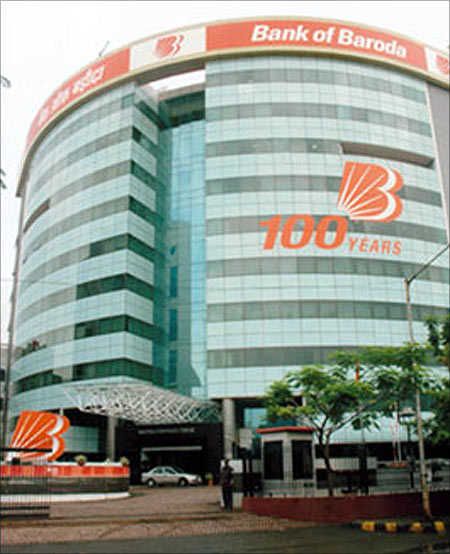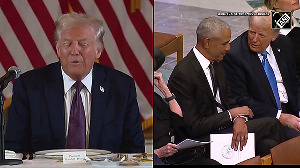Bank of Baroda has relatively better position on impaired assets, diversified loan book and cheaper valuations.
 Public sector banks (PSBs) have been a strict no-no for investors, due to impaired assets and weak capital structures.
Public sector banks (PSBs) have been a strict no-no for investors, due to impaired assets and weak capital structures.
However, can investors ignore 70 per cent of the banking system? Even if one excludes cash-starved weak banks, there are three large state-owned banks they cannot ignore - State Bank of India (SBI), Punjab National Bank (PNB) and Bank of Baroda (BoB).
The three constitute 35-40 per cent of the banking system. This argument is more valid now, as stock prices of PSBs have fallen 27 per cent so far, after last year’s euphoria settled. Most analysts believe BoB is the best among bigger PSBs.
From valuation to quality of loan book, there are several reasons why BoB scores over the others. According to Societe Generale Cross Asset Research, SBI and BoB stand out among PSBs, with less than five per cent restructured assets.
Over two years, nearly half the restructured book is expected to turn into non-performing loans and BoB looks good from this point of view, as its recast book is lower compared to others.
The bank has a diversified loan book, which has protected it from sharper deterioration than peers.
Thanks to higher slippages in the December quarter, BoB’s gross non-performing asset ratio rose to 3.85 per cent, while restructured assets stood at 5.9 per cent of credit.
Despite the weak performance in the quarter, ICICI Securities believes the bank still has an advantage over peers in terms of a well-diversified book, healthy capital adequacy, provision coverage ratio, and current and savings account profile.
The management recently met analysts and conveyed while it expected the Reserve Bank of India to cut another 50 basis points over nine months, it might not cut base rate anytime soon.
It plans to do so when the impact on net interest margin (NIM) is neutral. According to Karvy, the bank would see an increase in international NIMs, which will support the decline in domestic NIMs due to a base rate cut.
The valuations have turned rather attractive after the recent correction in stock price. Its shares have fallen six per cent over six months. Deutsche Bank Markets Research, in its note dated April 1, says: “We are turning more positive on PSBs, given their distress valuations, which now factor low (8-12 per cent) RoE (return on equity) and extremely high credit costs perpetually. We prefer larger names such as SBI, PNB, BoB.”
BoB is currently trading at one time its adjusted book value (FY17), which analysts believe factors in all the negatives.










 © 2025
© 2025